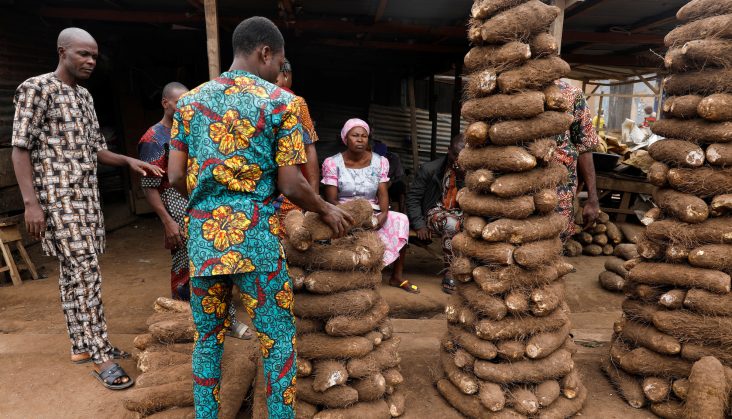Agriculture, chiefly crop production, contributes a quarter of Nigeria’s economy and depressed spending in rural areas will have a blanket effect on the entire economy, a report by SBM Intelligence has said.
Typically, the planting season in Nigeria begins late February and early March which coincides with the first rains in several parts of the country.
The SBM report came weeks after UNICEF projected that nearly 25 million Nigerians are at risk of facing hunger between June and August this year.
“The agriculture sector, which contributes significantly to the economy, suffered from depressed spending, affecting farmers’ ability to pay for labour and resulting in reduced production,” stated the SBM report, titled ‘Strapped: Impact of the Cash Scarcity on Individuals and Businesses’, released on 16 May.
Coping mechanisms
“The cash shortage also affected trade volumes, as many
There’s more to this story
Get unlimited access to our exclusive journalism and features today. Our award-winning team of correspondents and editors report from over 54 African countries, from Cape Town to Cairo, from Abidjan to Abuja to Addis Ababa. Africa. Unlocked.
cancel anytime
Already a a subscriber
Sign In

